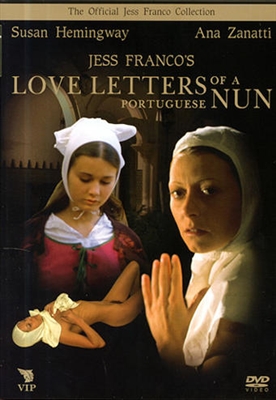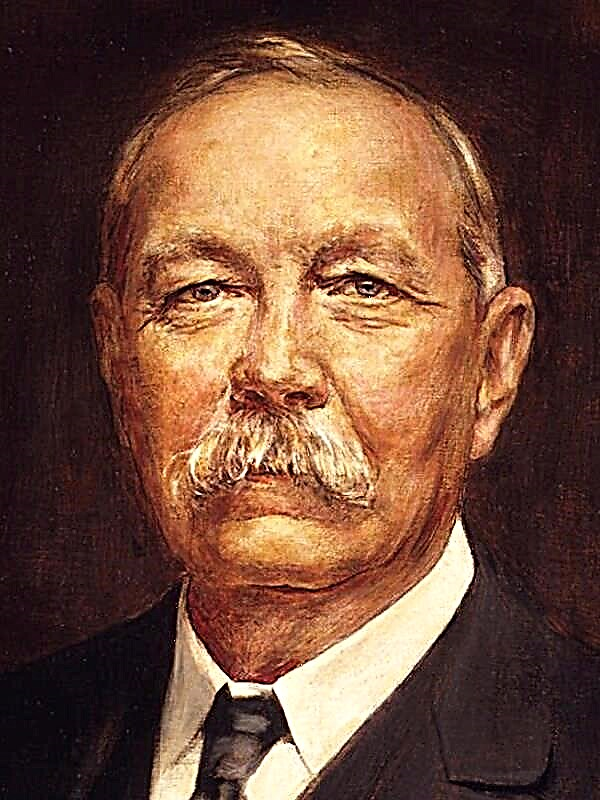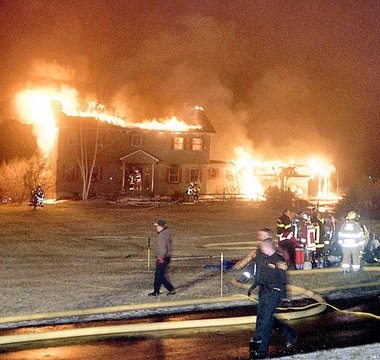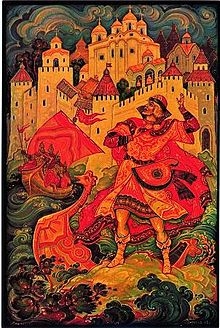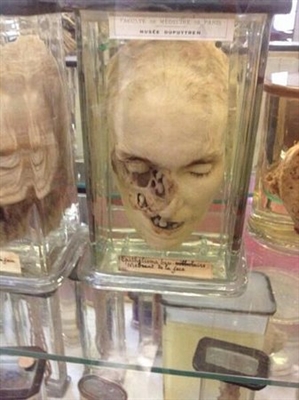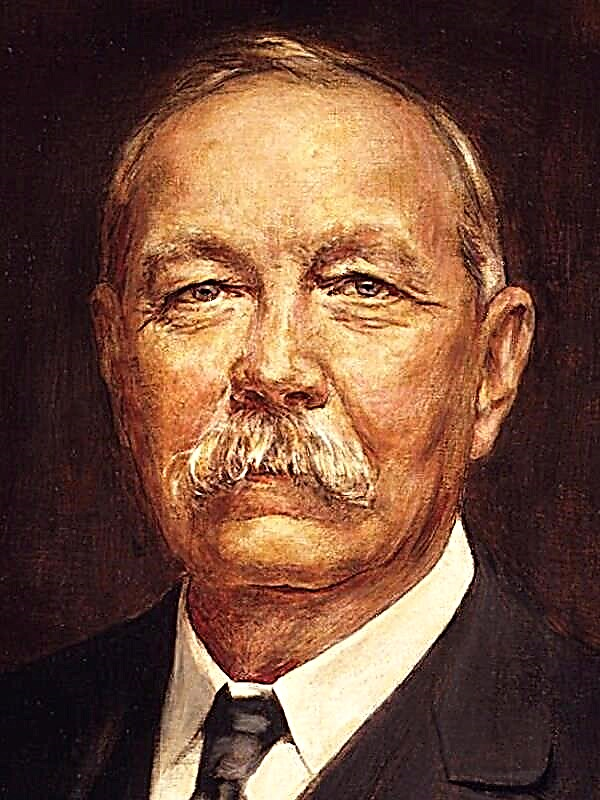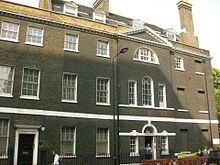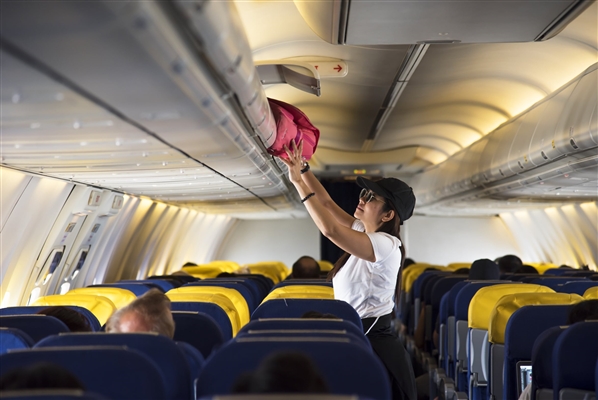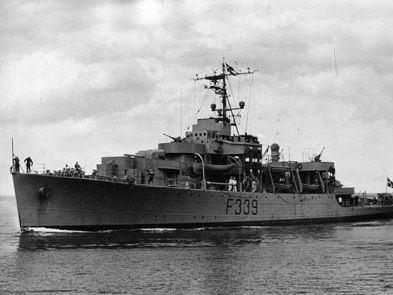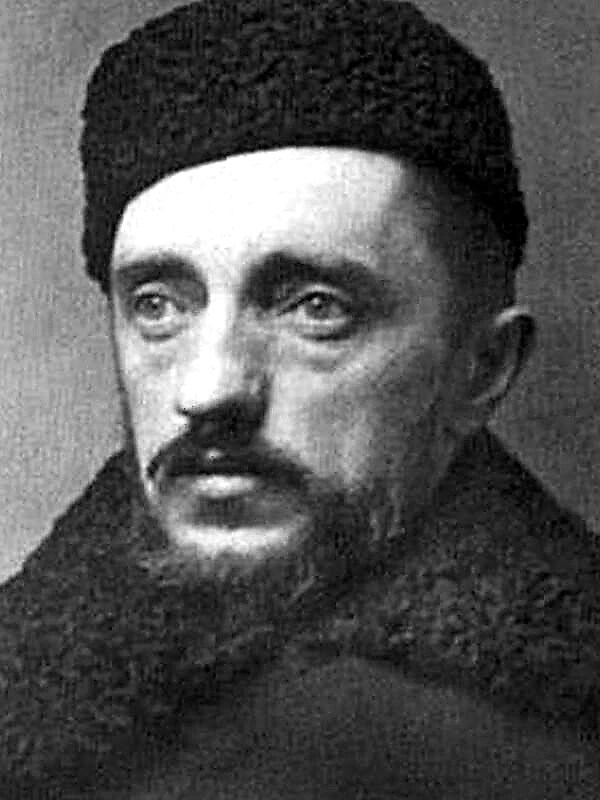In the Moscow house of Oblonsky, where “everything was mixed up” at the end of winter 1873, the owner’s sister, Anna Arkadyevna Karenina, is waiting for them. The reason for the family discord was that Prince Stepan Arkadievich Oblonsky was convicted by his wife of treason with a governess. Thirty-four-year-old Steve Oblonsky sincerely pities Dolly’s wife, but, being a truthful man, does not assure himself that he repents of his deeds. The cheerful, kind and nonchalant Steve has long been no longer in love with his wife, the mother of five living and two dead children, and has long been unfaithful to her.
Stiva is completely indifferent to the business he is engaged in, serving as the boss in one of the Moscow presences, and this allows him to never get carried away, not to make mistakes and perfectly fulfill his duties. Friendly, condescending to human shortcomings, the charming Steve takes advantage of the disposition of people of his circle, subordinates, bosses and generally everyone with whom he brings his life. Debts and family troubles upset him, but they can’t spoil his mood enough to make him refuse lunch in a good restaurant. He dines with Konstantin Dmitrievich Levin, who came from the village, his peer and a friend of his youth.
Levin came to make an offer to the eighteen-year-old Princess Kitty Shcherbatskaya, sister-in-law of Oblonsky, whom she had been in love with for a long time. Levin is sure that such a girl, who is above all earthly things, like Kitty, cannot love him, an ordinary landowner, without special gifts, as he believes. In addition, Oblonsky tells him that, apparently, he had a rival - a brilliant representative of the St. Petersburg "golden youth", Count Alexei Kirillovich Vronsky.
Kitty knows about Levin's love and feels with him easily and freely; with Vronsky she is experiencing an incomprehensible awkwardness. But it’s hard for her to understand her own feelings, she doesn’t know who to give preference to. Kitty does not suspect that Vronsky does not intend to marry her at all, and dreams of a happy future with him make her refuse Levin. Meeting his mother who came from St. Petersburg, Vronsky sees Anna Arkadyevna Karenina at the station. He immediately notices the special expressiveness of Anna’s entire appearance: “As if an excess of something so overwhelmed her being that past her will was expressed either in the gleam of her eyes, or in her smile.” The meeting is overshadowed by a sad circumstance: the death of the station watchman under the wheels of the train, which Anna considers a bad omen.
Anna manages to persuade Dolly to forgive her husband; In the Oblonsky house, a fragile peace is established, and Anna goes to the ball with the Oblonsky and Shcherbatsky. At the ball, Kitty admires the naturalness and grace of Anna, admires the special, poetic inner world that is in her every movement. Kitty expects a lot from this ball: she is sure that during the mazurka Vronsky will explain to her. Suddenly, she notices how Vronsky is talking with Anna: in each of their eyes, an irresistible craving for each other is felt, each word decides their fate. Kitty leaves in despair. Anna Karenina returns home to Petersburg; Vronsky follows her.
Blaming himself for the failure of the matchmaking, Levin returns to the village. Before leaving, he meets with his elder brother Nikolai, who lives in cheap rooms with a woman whom he took from a brothel. Levin loves his brother, despite his irrepressible character, which causes a lot of trouble to both himself and others. Heavily ill, lonely, drinking, Nikolai Levin is passionate about the communist idea and the organization of some kind of locksmith artel; it saves him from self-contempt.A meeting with his brother exacerbates the shame and discontent with himself that Konstantin Dmitrievich feels after the matchmaking. He calms down only in his family estate Pokrovsky, deciding to work even harder and not allow himself the luxury - which, however, had never been in his life before.
Her usual Petersburg life, to which Anna returns, causes her disappointment. She was never in love with her husband, who was much older than her, and only respected him. Now his society is becoming painful for her, she notices his slightest flaws: too big ears, the habit of popping fingers. Love for the eight-year-old son Seryozha does not save her either. Anna is trying to regain her peace of mind, but she does not succeed - mainly because Alexei Vronsky is trying in every way to get her disposition. Vronsky is in love with Anna, and his love is enhanced because the affair with the lady of the great light makes his position even more brilliant. Despite the fact that his entire inner life is filled with passion for Anna, outwardly Vronsky leads the usual, cheerful and pleasant life of a guard officer: with the Opera, the French theater, balls, horse racing and other pleasures. But their relationship with Anna is too different in the eyes of others from the burdensome secular flirtation; strong passion causes general condemnation. Alexey Alexandrovich Karenin notices the attitude of the world towards his wife’s romance with Count Vronsky and expresses his dissatisfaction with Anna. As a high-ranking official, “Alexey Alexandrovich lived and worked all his life in the areas of service dealing with reflections of life. And every time he came across life itself, he moved away from it. " Now he feels himself in the position of a man standing above the abyss.
Karenin’s attempts to stop his wife’s irresistible desire for Vronsky, Anna’s attempts to restrain herself are unsuccessful. A year after the first meeting, she becomes Vronsky's mistress - realizing that now they are connected forever, like criminals. Vronsky is burdened by the uncertainty of relations, persuades Anna to leave her husband and connect her life with him. But Anna cannot decide to break with Karenin, and even the fact that she is expecting a child from Vronsky does not give her determination.
During the races, in which the whole high society is present, Vronsky falls from his horse Frou-Frou. Not knowing how serious the fall is, Anna so openly expresses her despair that Karenin is forced to immediately take her away. She announces to her husband her infidelity, her loathing. This news gives Alexey Alexandrovich the impression of a pulled out sick tooth: he finally gets rid of the suffering of jealousy and leaves for Petersburg, leaving his wife in the country, awaiting his decision. But, after going through all the possible options for the future - a duel with Vronsky, a divorce - Karenin decides to leave everything unchanged, punishing and humiliating Anna with the requirement to observe the false appearance of family life under the threat of separation from her son. Having made this decision, Aleksei Aleksandrovich gains enough calmness to give himself up to thoughts about the affairs of the service with his usual stubborn ambition. The decision of her husband causes Anna to explode in hatred for him. She considers him a soulless machine, not thinking that she has a soul and a need for love. Anna understands that she is cornered because she is not able to exchange her current position for the position of a lover who has abandoned her husband and son and deserves universal contempt.
The continuing uncertainty of the relationship is painful for Vronsky, deep down in his heart who loves order and has an unshakable code of conduct. For the first time in his life, he does not know how to behave further, how to bring his love for Anna into accord with worldly rules. If connected with her, he will be forced to resign, and this is also not easy for him: Vronsky loves the regimental life, is respected by his comrades; he is also ambitious.
The life of three people is entangled in a web of lies. Pity for her husband alternates with disgust at Anna; she cannot help meeting Vronsky, as Alexey Alexandrovich demands. Finally, childbirth ensues, during which Anna almost dies. Lying in a maternal fever, she apologizes to Alexei Alexandrovich, and at her bed he feels pity for his wife, touched compassion and spiritual joy. Vronsky, whom Anna rejects unconsciously, experiences burning shame and humiliation. He is trying to shoot himself, but they are saving him.
Anna does not die, and when the spiritual softening, caused by the nearness of death, passes, she again begins to be burdened by her husband. Neither his decency and generosity, nor touching concern for a newborn girl relieves her of irritation; she hates Karenin even for his virtues. A month after her recovery, Anna goes abroad with the retired Vronsky and his daughter.
Living in the village, Levin is engaged in the estate, reads, writes a book about agriculture and undertakes various economic reorganizations that are not approved by the peasants. The village for Levin is “a place of life, that is, joys, suffering, labor.” Guys respect him, for over forty miles go to consult him - and they strive to deceive him for their own benefit. With respect to Levin, there is no deliberate attitude towards the people: he considers himself a part of the people, all his interests are connected with the peasants. He admires the strength, meekness, justice of the peasants and is annoyed by their carelessness, sloppiness, drunkenness, and lies. In disputes with his unmarried brother Sergei Ivanovich Koznishev, Levin argues that zemstvo activity does not benefit the peasants, because it is not based either on knowledge of their true needs or on the personal interest of the landowners.
Levin feels his fusion with nature; he hears even the growth of spring grass. In summer, he mows with the men, feeling the joy of simple labor. Despite all this, he considers his life to be idle and dreams of changing it to a working, clean and general life. In his soul, elusive changes are constantly being made, and Levin listens to them. At one time, it seemed to him that he had found peace and forgotten his dreams of family happiness. But this illusion crumbles to dust when he finds out about Kitty’s serious illness, and then sees her herself, going to her sister in the village. The feeling that seemed dead again takes possession of his heart, and only in love does he see an opportunity to solve the great mystery of life.
In Moscow, at the Oblonsky’s dinner, Levin meets Kitty and realizes that she loves him. In a state of supreme spiritual uplift, he makes an offer to Kitty and receives consent. Immediately after the wedding, the young leave for the village.
Vronsky and Anna travel to Italy. At first, Anna feels happy and full of joy in life. Even the fact that she is separated from her son, has lost her honest name and caused her husband’s misfortune, does not overshadow her happiness. Vronsky is lovingly respectful with her, he does everything to ensure that she is not burdened by her position. But he, in spite of his love for Anna, feels longing and clutches at everything that can give significance to his life. He begins to paint, but having enough taste, he knows his mediocrity and soon becomes disappointed in this occupation.
Upon returning to Petersburg, Anna clearly feels her rejection: they do not want to accept her, her acquaintances avoid meeting her. Insults of the light also poison Vronsky’s life, but, busy with her experiences, Anna does not want to notice this. On Seryozha’s birthday, she secretly goes to him and, finally seeing her son, feeling his love for herself, she realizes that she cannot be happy in separation from him. In despair, in annoyance, she reproaches Vronsky for stopping loving her; he should make great efforts to calm her, after which they leave for the village.
The first time in married life is hard for Kitty and Levin: they hardly get used to each other, charm gives way to disappointment, quarrels to reconciliation. Family life seems to Levin as a boat: it’s nice to look at gliding across the water, but it’s very difficult to rule. Suddenly, Levin receives news that Brother Nikolai is at death in the provincial city. He is immediately going to him; despite his protests, Kitty decides to ride with him. Seeing his brother, experiencing excruciating pity for him, Levin still can not get rid of the fear and disgust that causes the nearness of death in him. He is shocked that Kitty is not at all afraid of the dying man and knows how to behave with him. Levin feels that only his wife’s love saves these days from horror and himself.
During Kitty’s pregnancy, which Levin learns about on the day of his brother’s death, the family continues to live in Pokrovsky, where relatives and friends gather for the summer. Levin treasures the spiritual intimacy that he has established with his wife, and is tormented by jealousy, fearing to lose this intimacy.
Dolly Oblonskaya, visiting her sister, decides to visit Anna Karenina, who lives with Vronsky in his estate, near Pokrovsky. Dolly is amazed at the changes that have occurred in Karenina, she feels the falsity of her current lifestyle, especially noticeable in comparison with her former liveliness and naturalness. Anna entertains the guests, trying to deal with her daughter, reading, and arranging a village hospital. But her main concern was to replace Vronsky with everything that he had left for her. Their relations are becoming increasingly tense, Anna is jealous of everything he is fond of, even the Zemstvo activity, which Vronsky is engaged mainly in order not to lose his independence. In the fall, they move to Moscow, awaiting Karenin’s decision on divorce. But, insulted in his best feelings, rejected by his wife, and found himself alone, Aleksey Aleksandrovich falls under the influence of the famous spiritualist, Princess Princess Myagkaya, who persuades him out of religious considerations not to give the criminal wife a divorce.
In the relationship between Vronsky and Anna there is neither complete contention, nor agreement. Anna accuses Vronsky of all the hardships of her position; bouts of desperate jealousy are instantly replaced by tenderness; quarrels break out every now and then. In Anna’s dreams, the same nightmare is repeated: a peasant leans over her, pronounces meaningless French words and does something terrible with her. After a particularly difficult quarrel, Vronsky, contrary to Anna's desire, is going to visit his mother. In complete confusion, Anna sees her relationship with him, as if in bright light. She understands that her love is becoming more passionate and selfish, and Vronsky, not losing love for her, is still burdened by her and tries not to be dishonorable in relation to her. Trying to get his remorse, she goes after him to the station, there she suddenly remembers the man crushed by the train on the day they first met, and then she understands what she needs to do. Anna rushes under the train; her last vision is a mumbling peasant. After that, “a candle, in which she read a book full of anxieties, deceptions, grief, and evil, flashed a brighter light than ever before, illuminated her everything that had previously been in darkness, cracked, faded, and went out forever.”
Life becomes a hate for Vronsky; he is tormented by unnecessary, but indelible repentance. He volunteers for the war with the Turks in Serbia; Karenin takes his daughter to him.
After the birth of Kitty, which became a deep spiritual shock for Levin, the family returns to the village. Levin is in a painful discord with himself - because after the death of his brother and the birth of his son, he cannot solve for himself the most important questions: the meaning of life, the meaning of death. He feels that he is close to suicide, and is afraid to walk with a gun so as not to shoot himself.But at the same time, Levin remarks: when he does not ask himself why he lives, he senses the presence of an infallible judge in his soul, and his life becomes firm and determined. Finally, he realizes that the knowledge of the laws of good, given personally to him, Levin, in the Gospel Revelation, cannot be grasped by reason and expressed in words. Now he feels capable of putting the undoubted meaning of good into every minute of his life.

